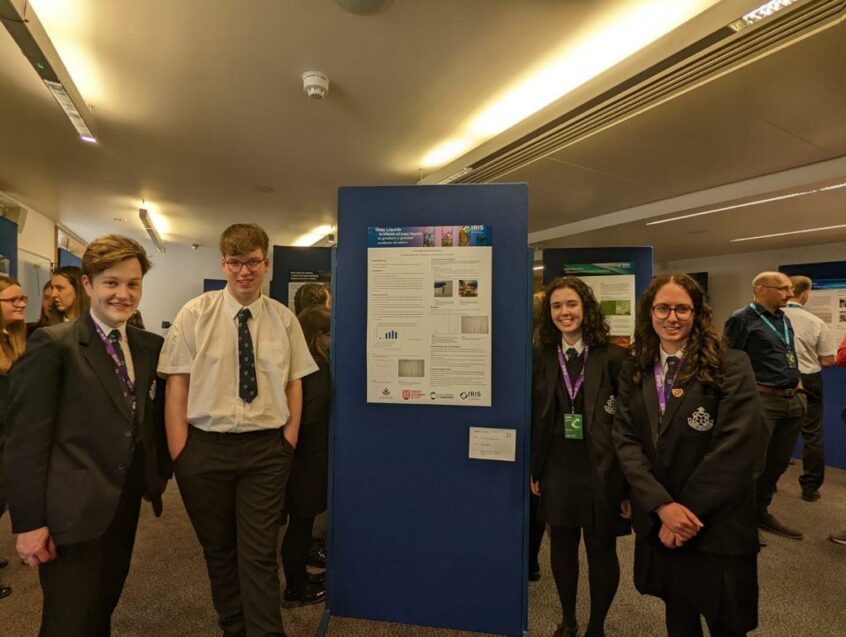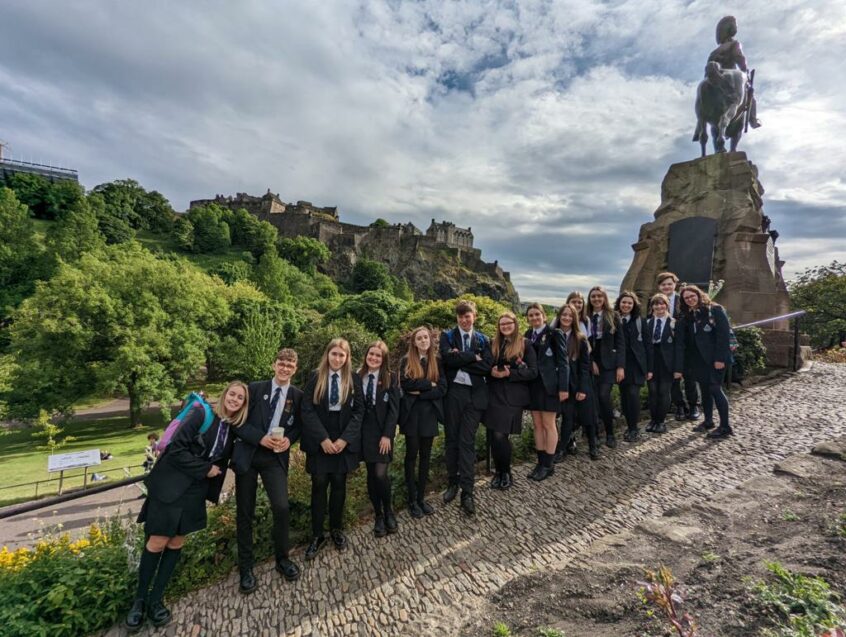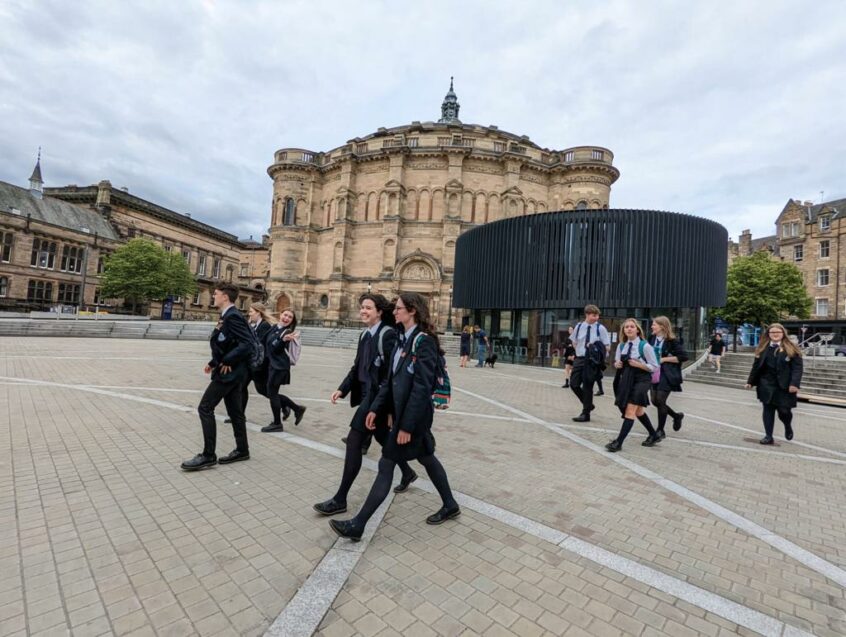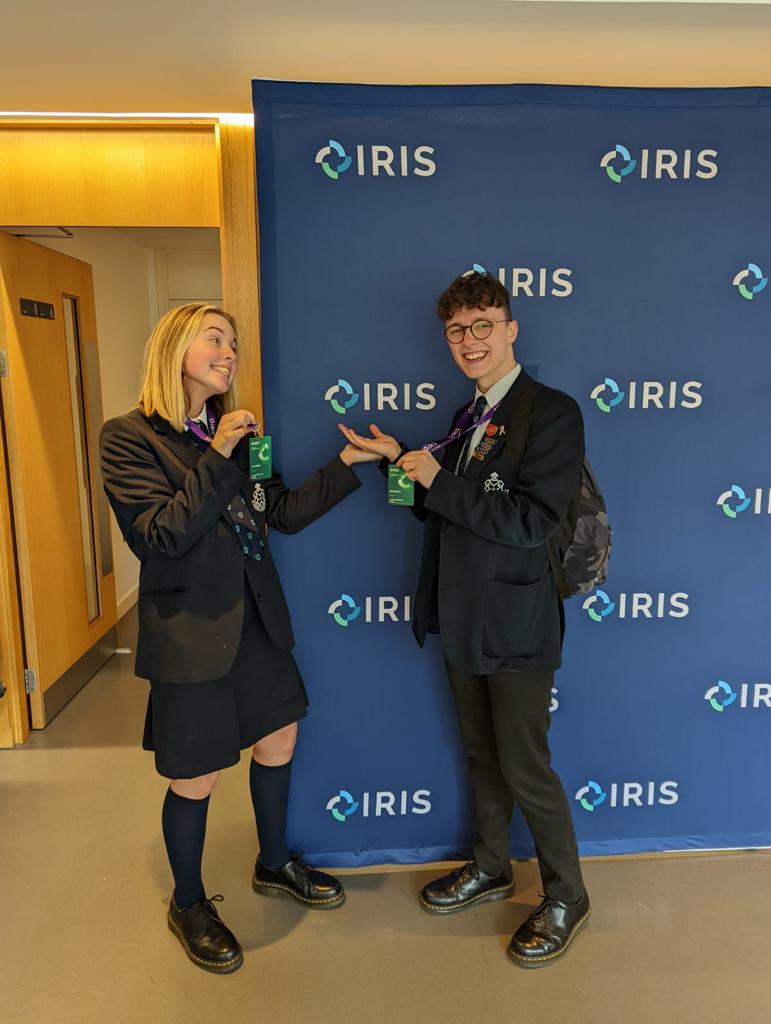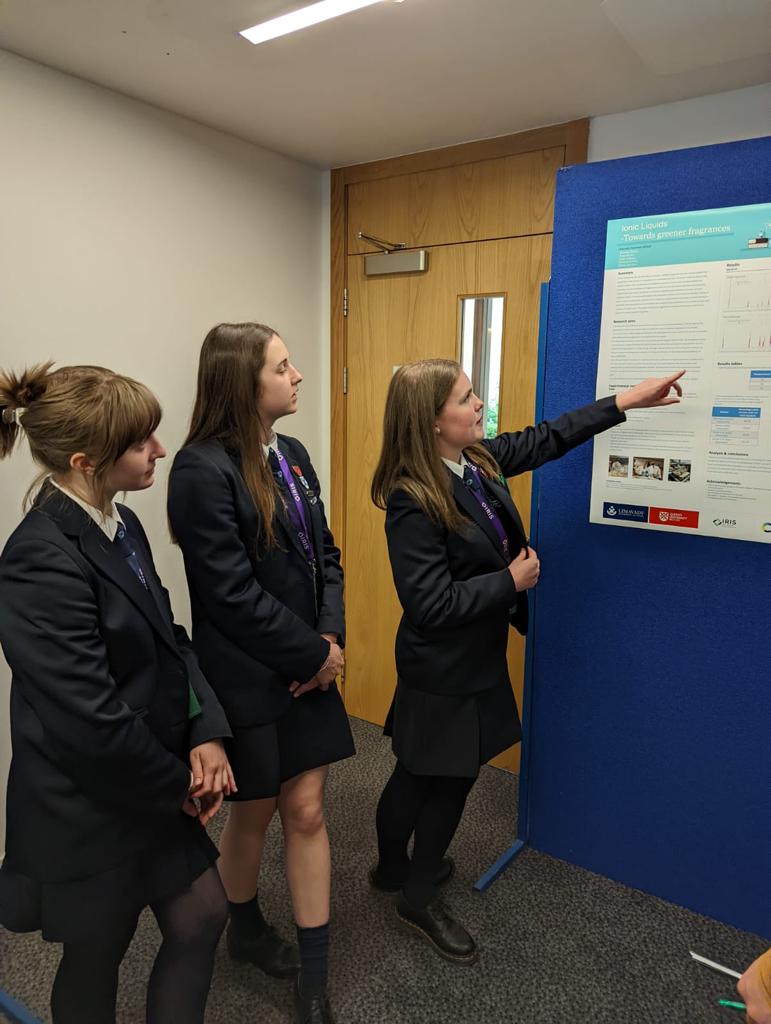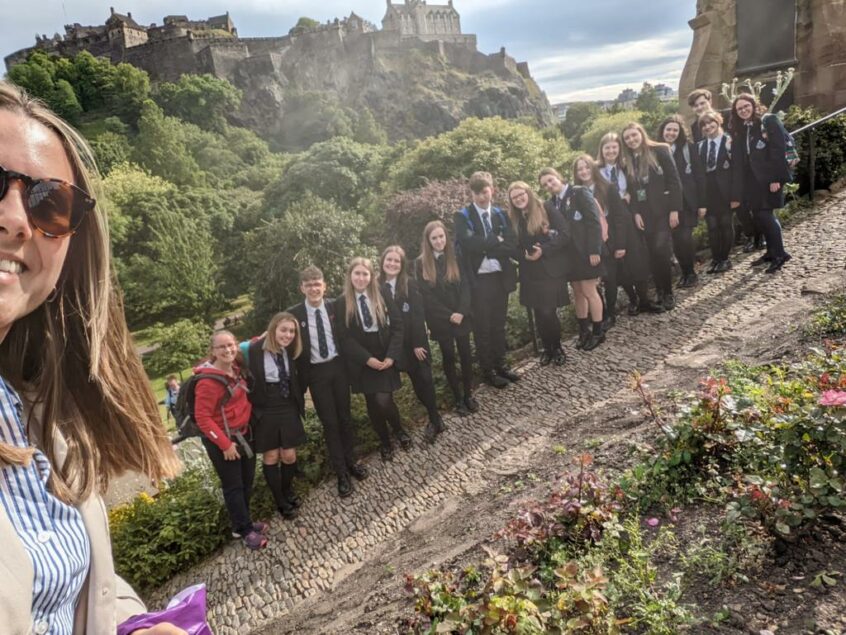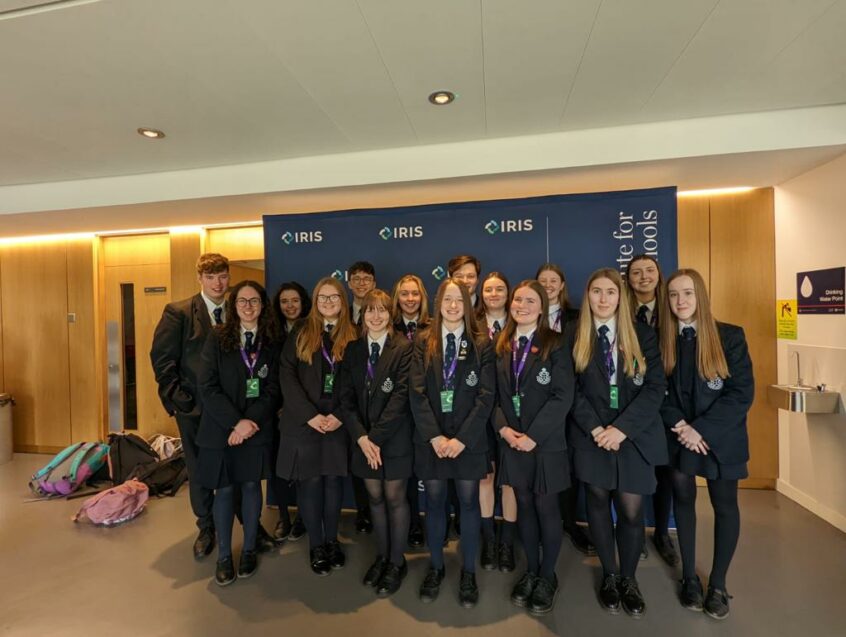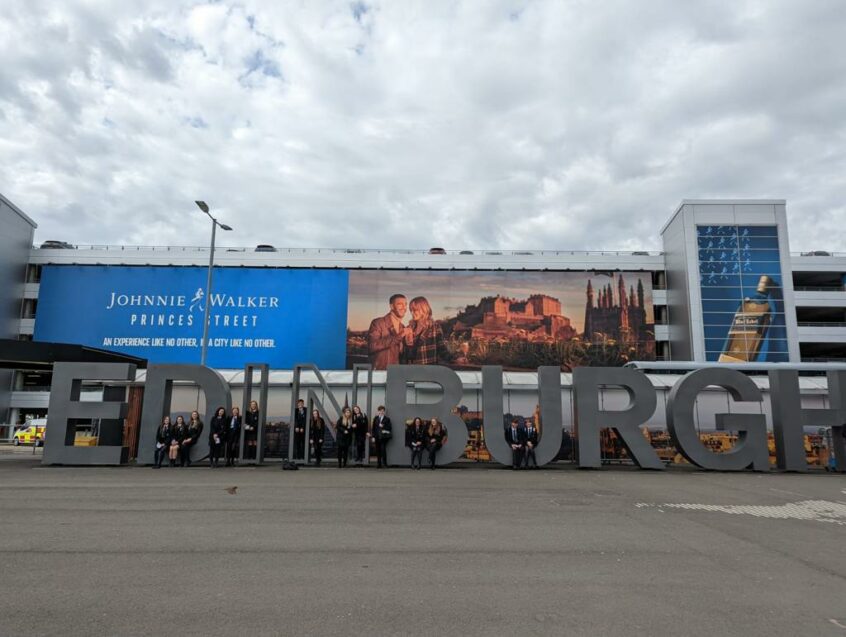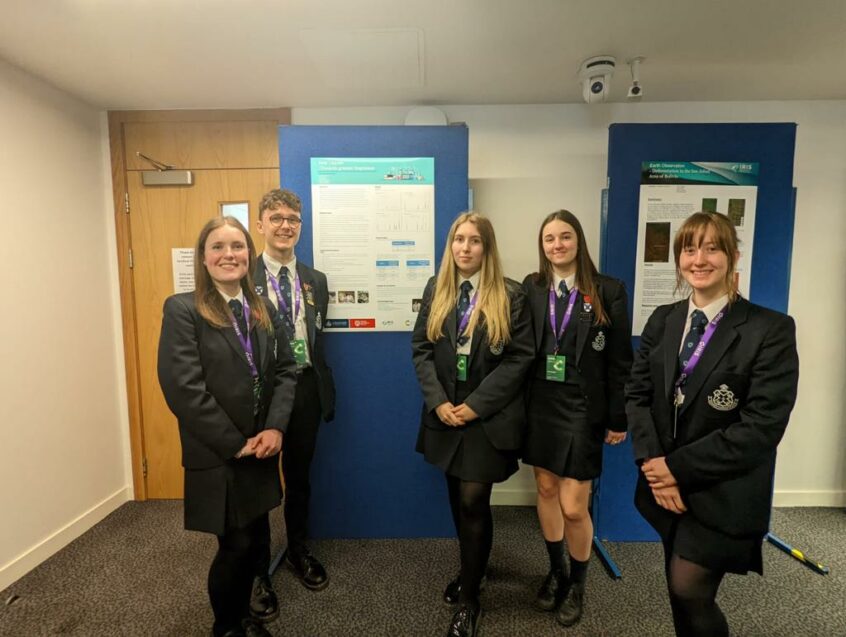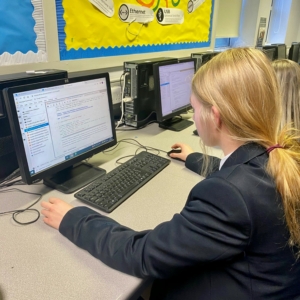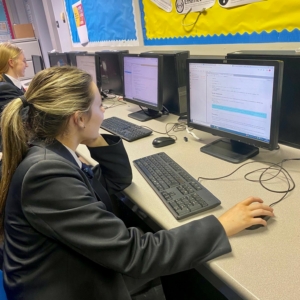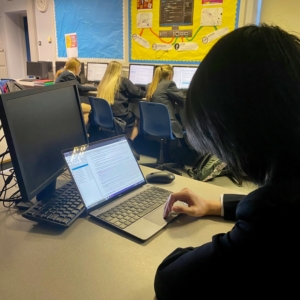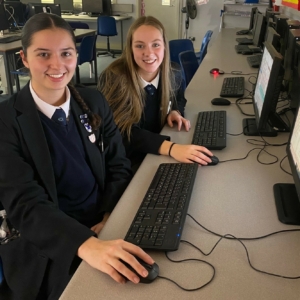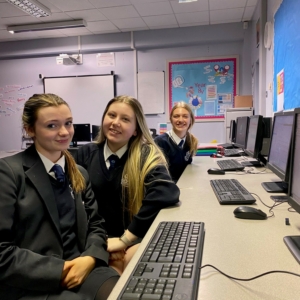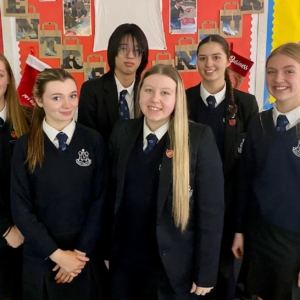In September of last year Limavady Grammar School were one of only 5 schools in Northern Ireland invited to be part of a pilot project run by the Institute for Research in Schools (IRIS) in conjunction with the School of Chemistry at Queen’s University Belfast. The project on ‘Ionic Liquids- towards greener fragrances’ aimed to give students an opportunity to experience real scientific research working alongside scientists to ask and explore open-ended questions. Approximately 20 enthusiastic chemistry students signed up to this project with almost all of them completing the project over the course of the year.
The project was launched with a trip to Queen’s University Belfast in early October, where we enjoyed a lecture from professors researching Ionic Liquids, giving us the expanded knowledge, we needed to start our project. Since we had just started our A-level course, coming to terms with this university level chemistry was quite a challenge. This was also where we met our PhD students, Haris and Shannon (a past pupil of LGS) who gave us a tour of the Ionic Liquid Labs at Queen’s. The following Tuesday Haris and Shannon came to one of our weekly meetings after school and provided us with multiple research papers which required further analysis. After a few weeks of understanding, coming up with our own research questions, risk assessing and preparing our methods we were finally ready to begin synthesising our ionic liquids and esters. Shannon and Haris again came to our labs to guide us in our first week of practical work.
After our first successful synthesis of ionic liquids and esters we began to alter their variables and methods by experimenting with a range of organic acids allowing us to produce a variety of different esters with different scents which would produce an aromatic fragrance. We changed the temperature that the reactions were carried out at, and the ratio that the ionic liquid was originally produced at. In each case we were testing if they had any effect on the yield. The higher the yield we could produce, the more sustainable the process would be.
We carried out practical work weekly in our schools’ labs before we then had the opportunity to attend Queens University’s labs, where we were then able to use their NMR Spectrometer to test the esters we had made to confirm their identity and assess their purity. This helped us massively in the progress of our research to evaluate the methods we had used.
All research we had gathered over the past couple of months then had to be summarised and presented in a poster format. We were going to have to present these findings to others at a conference in Edinburgh. We had to work as a team to ensure all the necessary information was on the poster in an easy-to-read format and had to make sure we could understand the information presented so we were able to answer questions from others about it. We were also given feedback from IRIS and the Royal Society of Chemistry as to how we could improve our presentations before our research was published.
We would like to thank IRIS and QUB School of Chemistry for giving us the opportunity to take part and for their assistance with this project. We would also like to thank RSC for their generous sponsorship.
By Emma Kershaw and Olivia Wilders
IRIS Conference 2022
The excitement of being given the opportunity to participate in a chemistry IRIS conference at the University of Edinburgh drove us all to complete our projects to our best ability.
Early on the 16th of June we met at the airport and took the anticipated flight to Edinburgh. It was a busy day filled with activities and travelling and we reached the conference at the university later that morning. Being the only Northern Irish students there we were not only proud to represent our school but our country too. We observed and listened to presentations made by other schools throughout the UK, which gave us a deeper insight into the scientific research conducted by them. Our scientific posters were put on display, and we were given the opportunity to present our research and answer questions from professionals, as well as other students.
Another exciting part of our day was being able to use an electron microscope, which up until then we had only read about. It was fascinating to see the detail as to which we can now view miniscule items such as hair and various cells.
The range of jobs in chemistry was also highlighted to us by a variety of people in eye-opening careers which included rocket ship building and testing. This gave many of us ideas and an insight to what opportunities chemistry can bring us in the future. Later we got to informally chat and discuss with the other students there about what their research experience was like and what they did differently to us throughout the project. It was great to understand and see a different perspective to the IRIS project from around the whole of the UK.
We were also given the amazing opportunity to explore parts of Edinburgh and got to walk around some of their beautiful parks and gardens as well as eat some great food!
Overall, the day was a massive success which was worth the work all year as we got to showcase our knowledge and hard work as well as taking a trip to one of the most exquisite cities in the world.
By Lucy Somerville and Joan Moore
LGS Recognised for STEM Research
Limavady Grammar School was delighted to be awarded a certificate by the Institute for Research in Schools in recognition of its commitment to student-led research. The enthusiasm of our A-level students made the work all worthwhile for the staff involved.
In addition to this our Ionic Liquids project was shortlisted for Best Research Project Ionic Liquids Project and was highly commended by the judges. This was a fantastic achievement in our first year of engaging with IRIS. You can read more about the project on the Royal Society of Chemistry website by following the link https://www.rsc.org/news-events/community/2022/11-november/towards-greener-fragrances
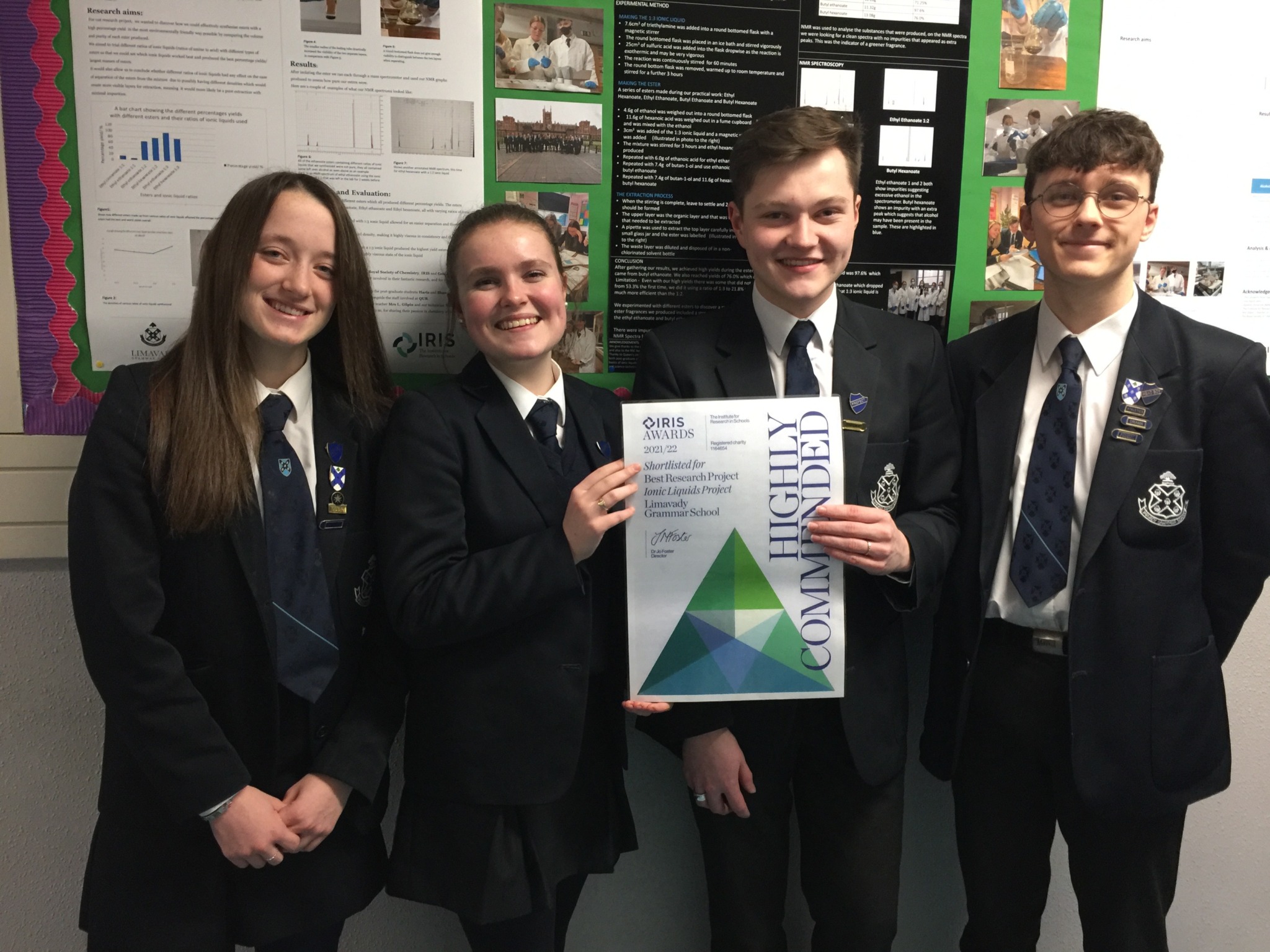
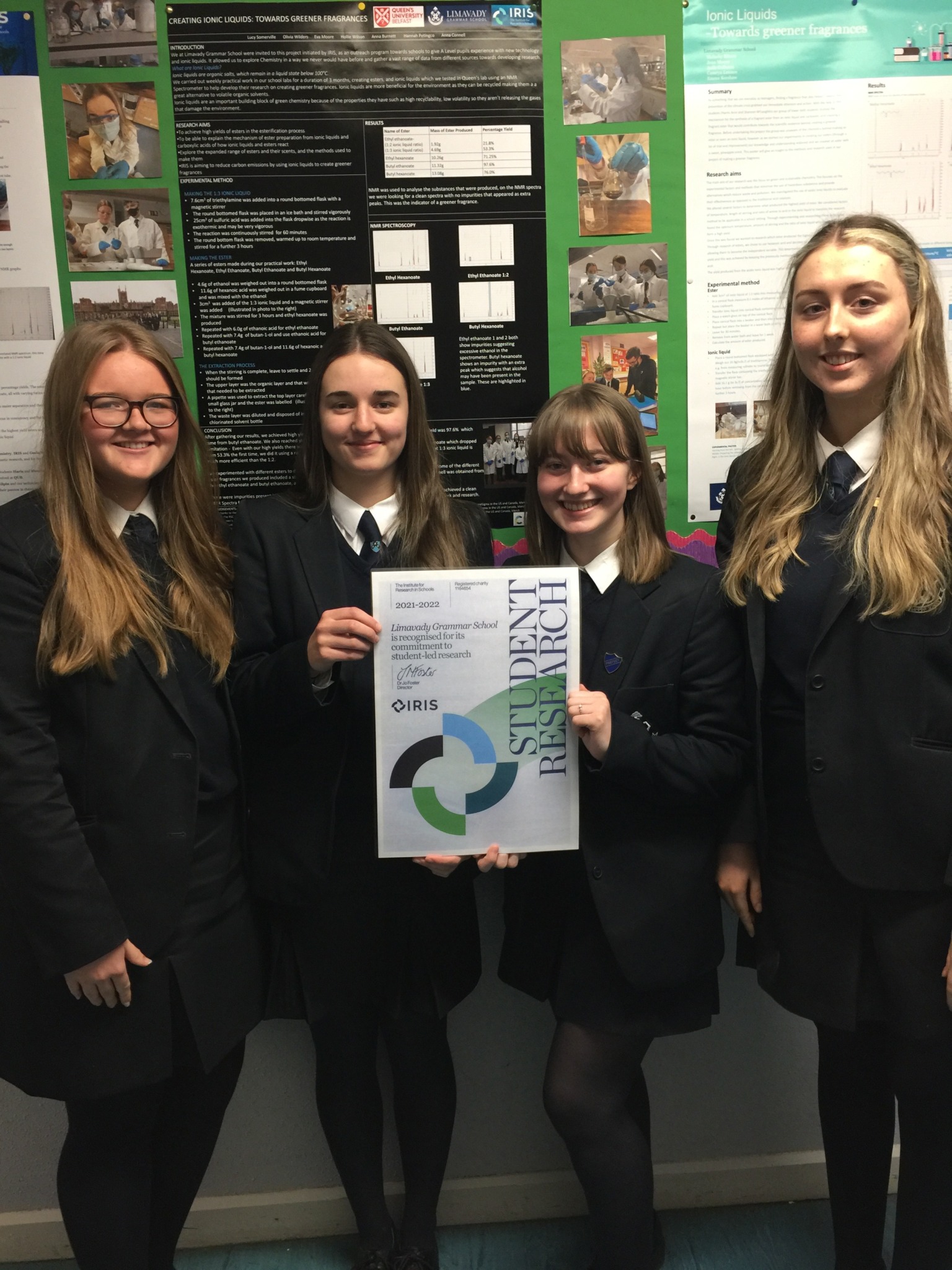
IRIS 2022-23
The IRIS story does not stop with the successes of our 2021-2022 cohort. This year the Physics department decided to offer two different physics research projects, expanding the offering to include KS4 as well as KS5.
Cosmic Mining: Our KS4 students are assisting astronomers with the identification and selection of potential targets for the James Webb Space Telescope- the largest, most powerful and complex space telescope ever built. Their work will contribute to the first fully classified catalogue of stellar sources, a valuable resource for astronomers.
Big Data- ATLAS:
Our KS5 students are being introduced to the analytical and coding methods used by particle physicists. Students will have the chance to explore their own questions in particle physics, analysing Open-Source data from ATLAS including how to find the Higgs Boson.
As the leading provider of STEM A-level subjects in the area we are delighted to offer our budding scientists these further opportunities to develop their skills and excite their passion for science and scientific research. Keep an eye on our social media to see how this year’s budding scientist are getting on.

